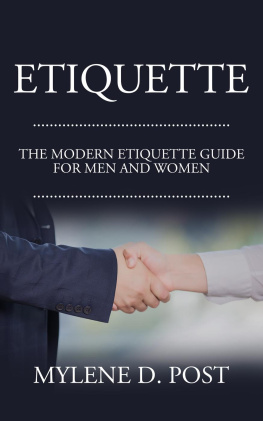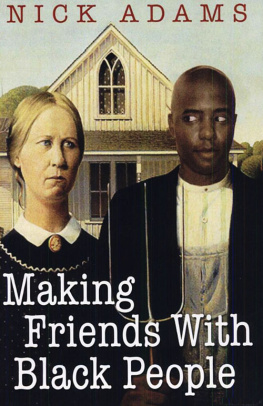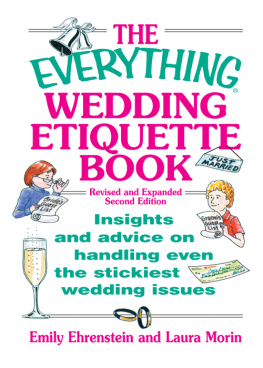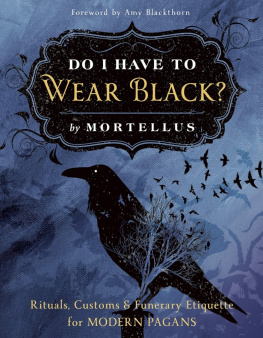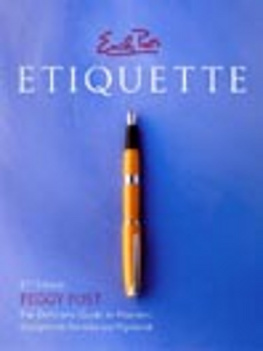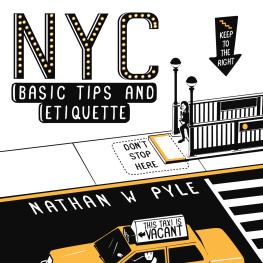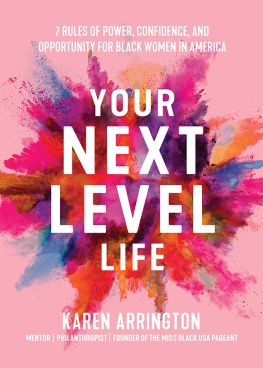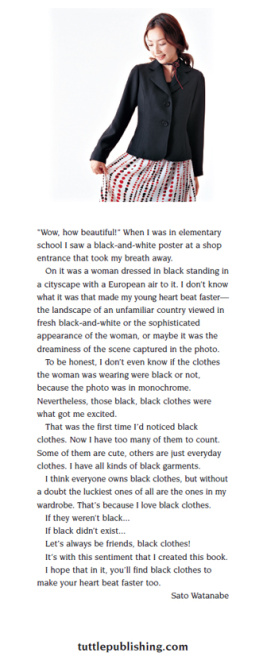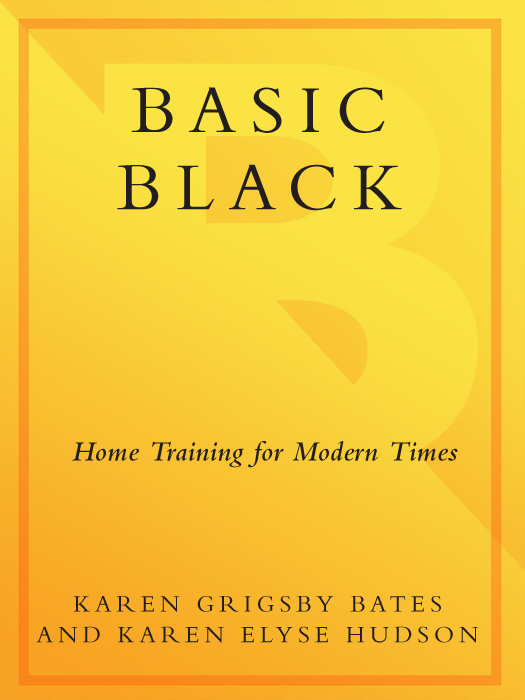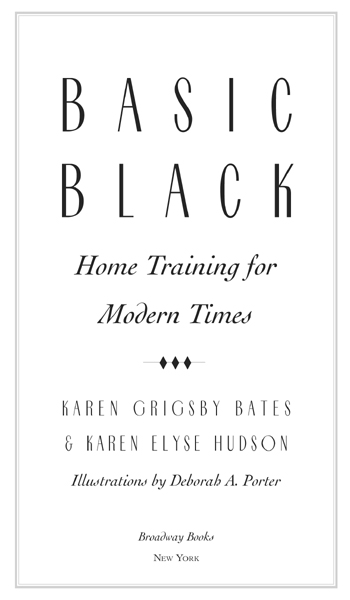
A hardcover edition of this book was originally published in 1996 by Doubleday, a division of Random House, Inc. It is here reprinted by arrangement with Doubleday.
BASIC BLACK . Copyright 1996 by Karen Grigsby Bates and Karen Elyse Hudson. All rights reserved. No part of this book may be reproduced or transmitted in any form or by any means, electronic or mechanical, including photocopying, recording, or by any information storage and retrieval system, without written permission from the publisher. For information address: Broadway Books, a division of Random House, Inc., 1540 Broadway, New York, NY 10036.
Lift Evry Voice and Sing by
James Weldon Johnson and J. Rosamond Johnson.
Used by permission of Edward B. Marks Music Company.
Ossie Davis quote on is used by permission of Eric V. Copage, author, Black Pearls: Daily Meditations, Affirmations, and Inspirations for African-Americans.
BROADWAY BOOKS and its logo, a letter B bisected on the diagonal, are trademarks of Broadway Books, a division of Random House, Inc.
Visit our website at www.broadwaybooks.com
First Broadway Books trade paperback edition published 2001
The Library of Congress has cataloged the hardcover edition as follows:
Bates, Karen Grigsby.
Basic black: home training for modern times /
Karen Grigsby Bates, Karen Elyse Hudson.
p. cm.
1. EtiquetteUnited States
2. Afro-AmericansConduct of life.
I. Hudson, Karen Elyse. II. Title.
BJ1854.B38 1996
395.08996073dc20
96-34771
eISBN: 978-0-7679-1092-7
v3.1
For
our mothers
and grandmothers
Acknowledgments
Our names are at the front of this book, but it would not have been possible to write it without the assistance and guidance of many, many others. For that, we would like to thank:
Our agent, Faith Hampton Childs, whose tenacity and vision perceived the significance of the book and saw it through to completion, along with her assistants Emily Bernard and Arlene Stoltz.
Deborah A. Porter, for her spirited illustrations, which captured our thoughts.
Ivarene E. Martin, who was beyond generous with her time and technical expertise when we found ourselves stuck in computer purgatory.
Paula Woods and Felix Liddell for seeing the forest despite the trees.
Our faithful readers/critics: Pat Bates, Gayle Harvey Beavers, Callie Y. Crossley, Lauren Adams DeLeon, Tonju Francois-Monroe, Dara B. Goosby and Jackieline Goosby, George T. Grigsby, Rosalyn Willis Illunga, Maria M. Miller, James W. Norton, Gloria H. Peterson, and Winifred Younge Smith.
Our literary sisterhood, Babes on Books, and the Lunch Bunch.
Detective Jack Brown, of the Los Angeles County Sheriffs Department, and Officer Fred Romero (retired), of the Los Angeles Police Department, for their technical assistance.
Juanita T. James and Eric V. Copage for their good cheer and helpful hints.
The spirits of countless black women of style through the ages who have inspired us. Essence, Ebony, and other black magazines that since their first issues have showcased black American families, values, culture, and accomplishments.
Charlotte Hawkins Brown, whose early effort blazed a trail before us.
Those whose enthusiasm for the project buoyed our flagging spirits in discouraging moments: Anita Addison, Layne Bordenave, Wren Brown, Susan Carter-Passmore, Marcy De Veaux, Zuretti, Sara and Jenckyn Goosby, E. Lynn Harris, Muriel Poston Hughes, William Jeffrey, Karen R. Jones, Star Jones, Royal Kennedy, Nancy Rucker Livingston, Pamela McKoin, Sylvester Monroe, Laurence C. Morse, Deborah W. Norton, Barbara Safrin, Sharon Sellico, Vivian L. Stephens, Odessa Taylor, Jonelle Procope Terrell, Shelley M. Trinidad, Cydney E. Tweed, Valerie Wilson Wesley, and Stacy B. Williams.
Our families from Karen B: thanks to Bruce W. Talamon, whose support, encouragement, and patience allowed me to finish what I started, and to Jordan Talamon for going with the flow. And to my father, Bernell H. Bates, who encouraged me to go as far as possible, and whose nightly counsel on such things as posture, enunciation, and the sanctity of commitment will be with me for a lifetime. From Karen Elyse: to my father, Elbert, my brother Paul, and my grandfathers H. Claude Hudson and Paul R. Williams: thank you for being gentlemen. Home training at our house was, and continues to be, a shared experience.
And finally, our mothers, Miriam G. Bates and Marilyn W. Hudson, and grandmothers, Purry Dixon Grigsby, Florence Green Bates, Della Givens Williams, and Thomey T. Hudson, both present and gone before us, who gently taught us the principles of home training by daily example.
We are grateful to all of you.
Karen Grigsby Bates
Karen Elyse Hudson
H OME T RAINING:
Our Definition
home training(hom traning) n. colloq., African American. 1. The education, instruction, or discipline of a person in accepted mores or values. 2. Possessing behavior that is reflective of proper rearing. 3. Correct breeding. Synonyms: good manners; proper breeding; polite behavior. Antonyms: rude; impolite; without culture or refinement
Contents
I. Y OUR M OTHER W AS R IGHT!
Remembering the Good Advice You Got Back When
II. C OMMUNICATING
The Drum and Beyond
III. L IFE L ESSONS
The Complete Seminar
IV. D ATING , M ATING, AND B EGETTING
From Oh Baby to Babies
25. I Do, I Dont:
Marriage and Other Living Arrangements
V. F UNCTION AT THE J UNCTION
Party All the Time
VI. M ILESTONES
Important Stops on the Road of Life
VII. A ND F URTHERMORE
More Proof Your Mother Was Right!
Introduction
Were often asked why we chose to write an etiquette book for our community, and many thoughts come to mind. To begin with, our culture is unique and filled with tradition that has not been addressed, to our knowledge, in other etiquette books. We take pride in this heritage. While manners in general are colorless and span class, age, and environmental and geographic differences, nothing beats good old home training. No one can teach us the way our grandmothers, mothers, and aunts have taught us for centuries. From fathers and grandfathers, boys, too, learned lessons that endured. In that spirit, we offer you a guide for modern living, not a mandate.
Now that women are working outside the home in greater numbers, our family structure has changed. Todays household may be traditional, it may be headed by a single parent, or it may even involve babies raising babies. Gone are the days when families sat down to dinner together each and every night. Gone, too, are the days when everyone looked out for each other. Those were the days of knowing that your mother would have been told about one of your lapses in manners long before you ever returned home from school.
Remember those evenings when youd get home, do your homework and chores, and eagerly await dinner? At the dinner table you learned from listening as elders spoke; you learned to listen (because youd better not interrupt when your dad was asking your sister why he got a note from her teacher); you learned to speak clearly when you were asked about your day; you learned to share and not blow bubbles in your milk. And the lessons extended to the kitchen. As you became old enough to participate in setting the table, you also learned which dishes should arrive covered, which tablecloth was used for holidays, and which glasses were for milk, lemonade, or Dads favorite beverage.


